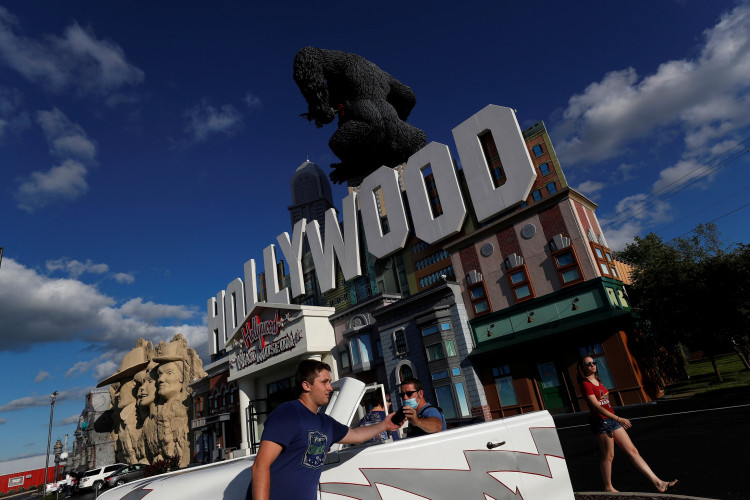President Donald Trump has moderated his stance on a controversial proposal to impose 100% tariffs on movies "produced in foreign lands," after intense backlash from Hollywood studios, state officials, and entertainment industry leaders. Initially framed as a protectionist measure, Trump's announcement triggered fears of retaliation overseas, potentially jeopardizing billions of dollars in U.S. film revenue.
"I'm not looking to hurt the industry, I want to help the industry," Trump told CNBC, following widespread criticism of his tariff proposal. "So we're going to meet with the industry. I want to make sure they're happy with it because we're all about jobs."
California Governor Gavin Newsom, who quickly countered Trump's initial tariff announcement by proposing a $7.5 billion federal tax incentive program to bolster domestic film production, defended California's record. In a statement, Newsom's office emphasized his commitment to keeping film production within the state, citing "hundreds of thousands of good-paying jobs across every sector."
Newsom previously announced plans to increase California's own film tax credits to $750 million. Responding specifically to Trump's criticism of his leadership, Newsom stated he was "eager to partner with the Trump administration to further strengthen domestic production," highlighting a potential avenue for compromise.
Yet industry observers remain anxious. According to the Motion Picture Association, the U.S. remains the world's leading exporter of films, with export values roughly three times greater than imports. Studios fear that retaliatory tariffs could severely disrupt their international revenues, which constitute the majority of box office earnings for major Hollywood releases.
In 2024, Disney's "Inside Out 2," the year's highest-grossing film, earned 61.6% of its $1.7 billion box office revenue overseas. Similarly, Warner Bros. Pictures' blockbuster "Barbie" generated 56% of its global earnings internationally, underscoring Hollywood's deep reliance on foreign markets.
California Senator Adam Schiff joined the pushback against the tariff plan, advocating instead for enhanced federal tax incentives. Schiff cautioned, "Blanket tariffs on all films would have unintended and potentially damaging impacts," adding that targeted tax credits would more effectively "re-shore American jobs in the industry."
Trump initially characterized his proposal as essential to safeguard "national and economic security," suggesting Hollywood's overseas production weakens American film dominance. However, critics such as late-night host Jimmy Kimmel ridiculed the tariffs, mockingly questioning whether foreign-produced movies represented "a national security threat."
Amid ongoing uncertainty, major studios and analysts have refrained from detailed commentary pending clarification from the Trump administration. White House spokesperson Kush Desai told Axios the administration is still "exploring all options," fueling continued uncertainty about the practical implications of any tariff on intellectual property or overseas production.
Some analysts warned that, without clarity, studios might halt overseas projects to avoid unforeseen costs. Such hesitation could further erode box office earnings at a time when studios are still recovering from pandemic-era losses.






